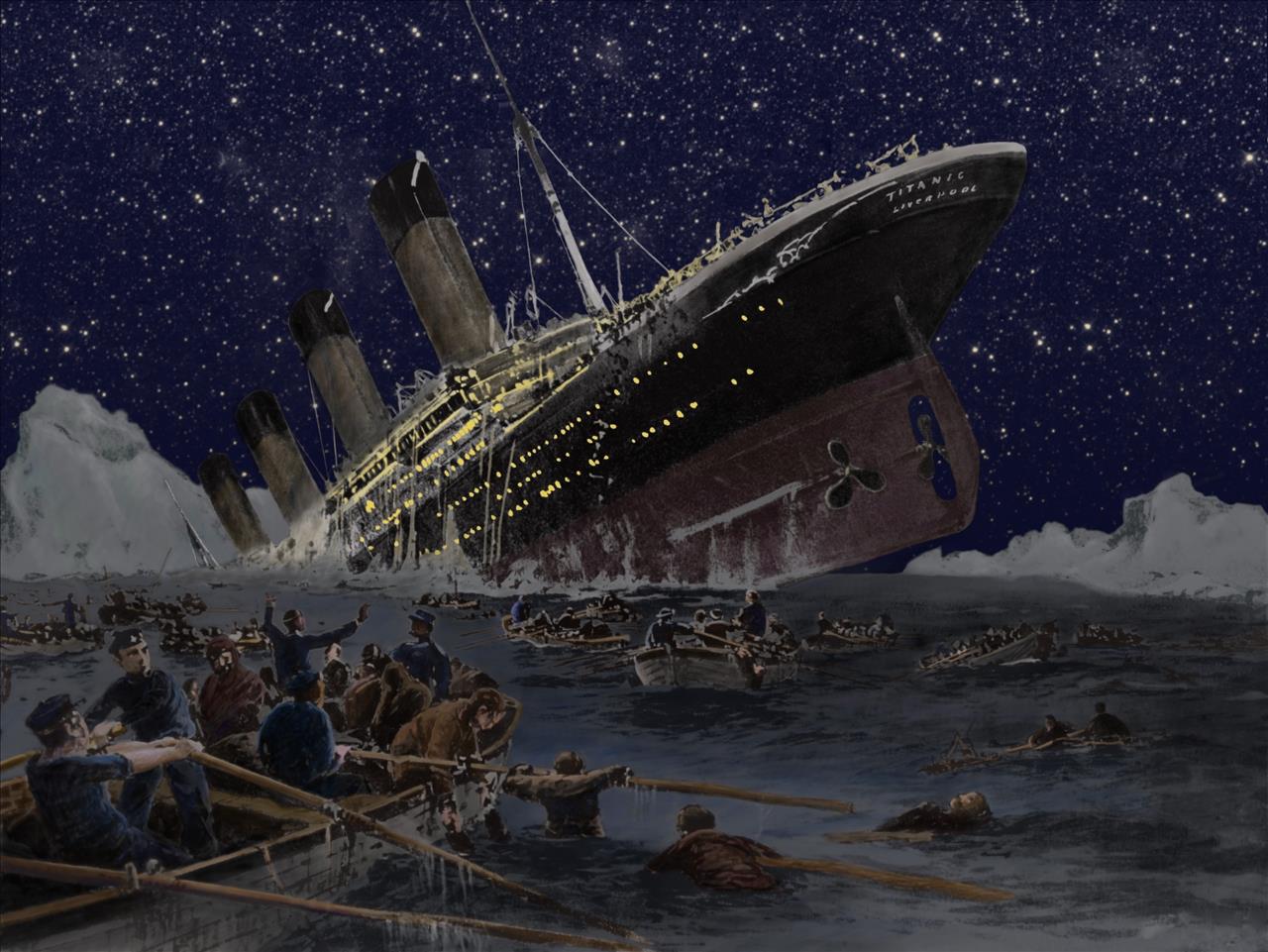
Titanic sinks below the waves
There is sometimes an eternal sadness that accompanies an urban myth.
One surrounds the sinking of RMS Titanic on the 15th April 1912 - and brass bands.
After news of the tragedy had reached the UK, stories soon emerged of the heroism of the eight musicians of the ship’s orchestra, led by bandmaster, Wallace Hartley.
Just five days after the event, the ‘Dublin Daily Express’ reported that as the great ship slowly sank beneath the freezing waves, the small ensemble solemnly performed various pieces of music, before they themselves perished.
One account from a first class passenger called Mrs Vera Dick, said that the final song performed was the hymn ‘Nearer, My God to Thee’, whilst another said; “Many brave things were done that night, but none were more brave than those done by men playing minute after minute as the ship settled quietly lower and lower in the sea.
The music they played served alike as their own immortal requiem and their right to be recalled on the scrolls of undying fame.”
Collective mourning
Soon reports followed of the terrible loss of life, whilst a communal sense of mourning found many outlets, with one correspondent to the ‘Berwick News & General Advertiser’ newspaper in May 1912 penning a poem that contained the verse;
In the hush of those awful moments, in the face of their certain doom,
The blackness of night around them, beneath them a watery tomb;
Within them a light was shining, so they feared not the hungry sea,
For the band, formed up on a sloping deck, played ‘Nearer, My God to Thee’.
A legend had begun.
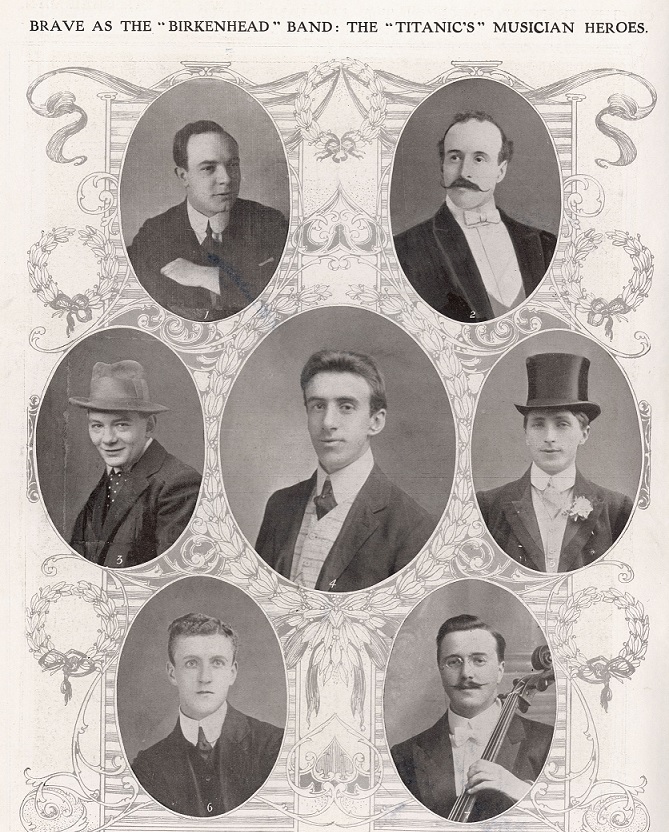
The musical heroes (Roger Briconx is missing)
Heroic ambiguity
The “heroic musicians” as the Dublin newspaper called them, were Bandmaster Wallace Hartley of Dewsbury; John Hume of Dumfries; Percy Taylor from Clapham in London; John Woodward of Oxon; Roger Briconx from Lille in France; Frederick Clarke of Liverpool; George Krins from Brixton in London and Theodore Brailey, also of London.
Brailey was a pianist- all the others were string players
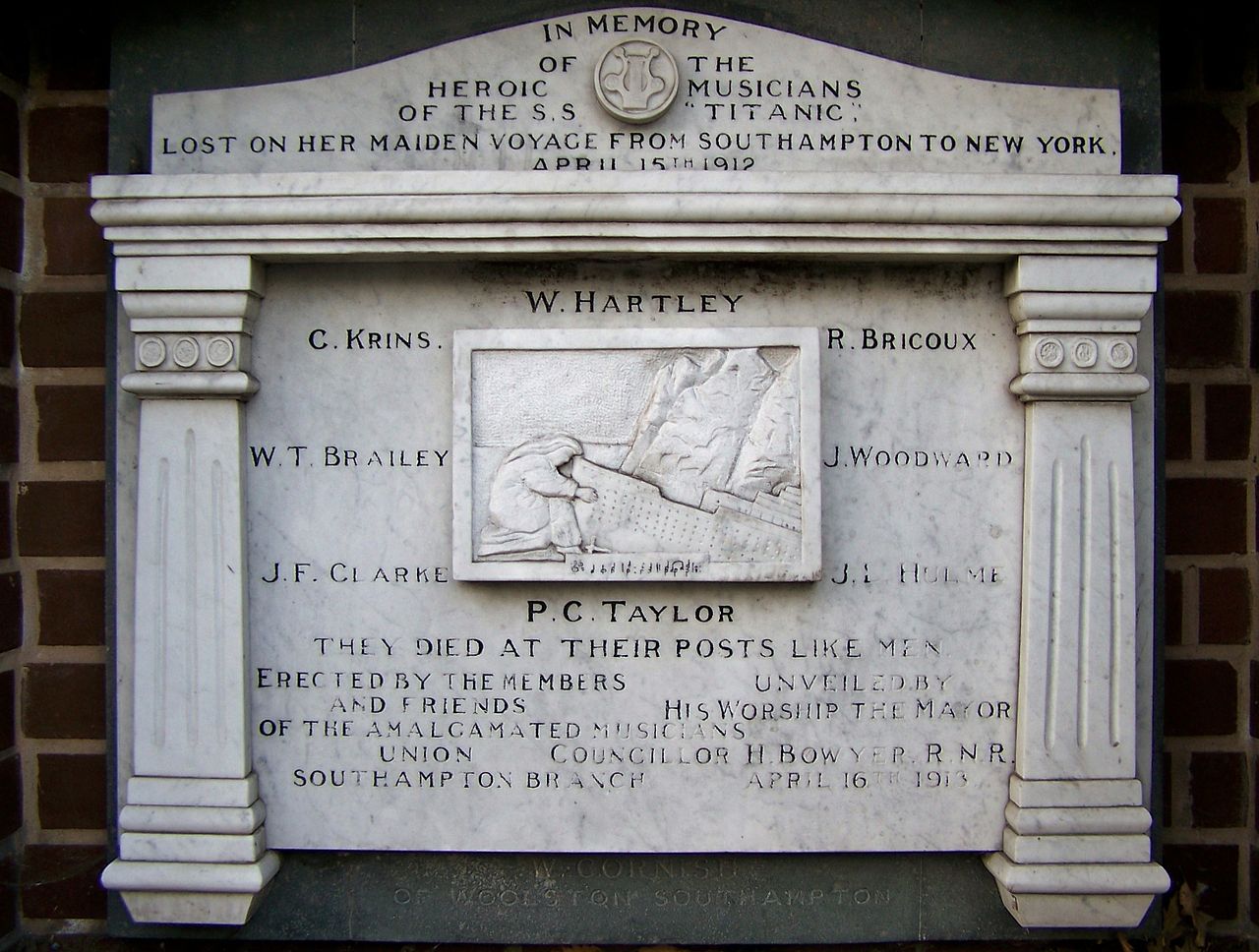
The Memorial in Southampton (image Marek)
However, given the lack of exact information that was available at the time, the newspapers were ambiguous about what instruments they actually played.
Wallace Hartley’s body was found in the water (still in evening dress) and was later buried in the town of Colne in Lancashire where a memorial still stands today. His violin was found strapped to his body. However, those of three of his compatriots were lost forever.
At Hartley’s funeral it was also reported that portraits of him were “sold by the hundred” and the funeral procession included “six brass bands” which played the ‘Dead March’ from ‘Saul’.
Best seller
Soon memorial concerts throughout the country were held - from Evesham to Edinburgh, with one at the Royal Albert Hall resulting in a profit of £743 which was distributed to the Mansion House Fund (ear-marked for survivors of the musicians); for a memorial in the new institute of the Orchestral Association; to the Samaritan Fund of the Royal Society of Musicians; and the Orchestral Association Distress Fund for orchestral players, to be founded in memory of the Titanic bandsmen.
Brass band sheet music for ‘Nearer, My God to Thee’ became a best seller.
Questions
However, within days of the disaster and loss of over 1500 lives, the questions started to be asked – including whether the band actually played ‘Nearer, My God to Thee’ (the 19th century verse by Sarah Flower Adam, popularly linked to the Methodist tune ‘Propior Deo’ written by Arthur Sullivan) as RMS Titanic sank to her icy grave.
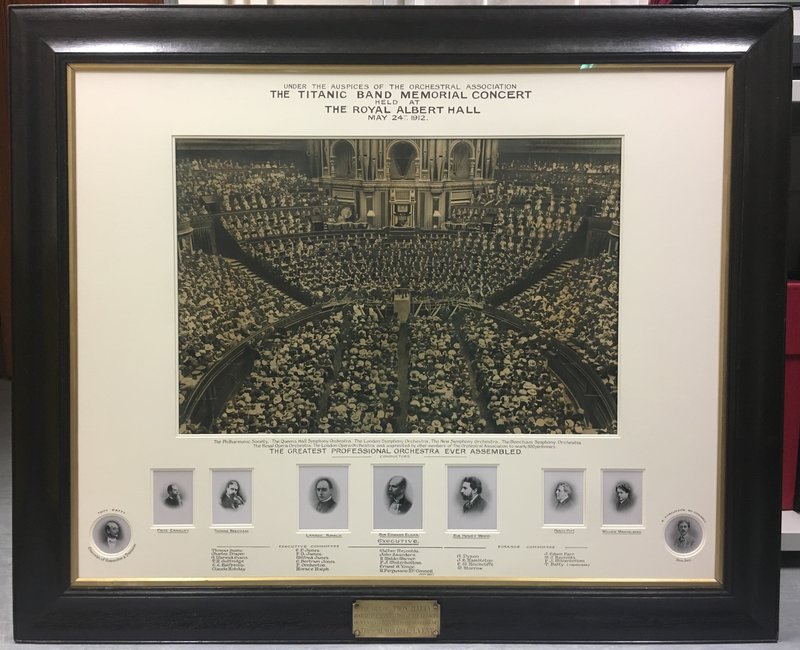
The Titanic Memorial Concert was held at the Royal Albert Hall
Last people
It later transpired that Mrs Vera Dick had in fact left by lifeboat over an hour before the ship sank, making it unlikely that she would have heard any music played. In addition, a report from radio operator Harold Bride, who was one of the last people to jump from the decks, stated that he heard the song ‘Autumn’ or the waltz ‘Song ‘d’Automne’ played.
It later transpired that Mrs Vera Dick had in fact left by lifeboat over an hour before the ship sank, making it unlikely that she would have heard any music played. In addition, a report from radio operator Harold Bride, who was one of the last people to jump from the ship, stated that he heard the song ‘Autumn’ or the waltz ‘Song ‘d’Automne’ played.
One survivor, Mr. A. H. Barkworth from Hessle in East Yorkshire told the London Telegraph: “I have read several accounts of how the hand played ‘Nearer, My God, to Thee.’
I do not wish to detract from the bravery of anybody, but I might mention that when I first came on deck the band was playing a waltz. The next time I passed where the band had been stationed the members had downed their instruments, and were not to be seen, but I shall never forget the fierce, jarring notes of that waltz they played.”
Stories
Whilst the press of 1912 may not have had the sophisticated means to intrude into the private lives of individuals as it does today, soon other ‘stories’ emerged.
Details of Hartley’s Last Will & Testament were published, as were reports that the White Star Line treated the musicians not as employees, but as passengers – enabling them to avoid liability in their deaths, even though it was reported that they had “received the order to play all the time without stopping as to avoid a panic”.
According to an eyewitness, the French aviator Pierre Marichal, they were placed “on the deck” and that he noticed that “none had a life belt, he being convinced that in giving them the orders, their lives were to be sacrificed to avoid disorder on board.”
According to an eyewitness, the French aviator Pierre Marichal, they were placed “on the deck” and that he noticed that “none had a life belt, he being convinced that in giving them the orders, their lives were to be sacrificed to avoid disorder on board.”
Following the disaster, the relatives of at least one musician received an invoice for money owed to the shipping agency that booked them.
Alongside it came a statement explaining that since the deceased musician’s contract had terminated at the moment the band could no longer play, his wages, reduced pro-rata, were insufficient to meet expenses incurred on his behalf, including White Star lapel insignias for his bandsman’s tunic, sewing White Star buttons on his uniform and his sheet music.
Different paths
From this point stories about the ‘Titanic band’ took many different paths and identities - including ones that mistakenly led to brass bands.
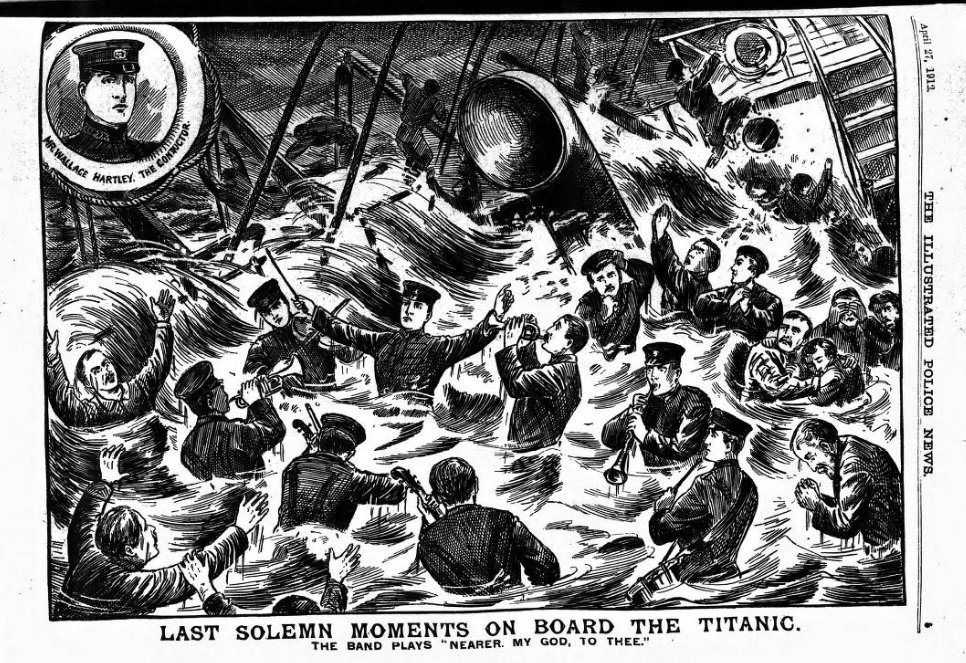
A romanticised illustration of the last moments of the band
Further reports soon emerged that suggested “the band” had played in the Saloon Bar as the ship sank, whilst the first illustrations of the fateful night also appeared - including one from ‘The Illustrated Police News’ on April 27th that included a cornet player, trumpeter, clarinettist and side drummer beside Wallace Hartley as the waves engulfed them.
Another from the New York Yiddish Paper ‘Der Groyser Kundes’ on April 16th showed a trombonist and one, possibly two cornet players.
Struck a chord
Although completely inaccurate, they struck a chord of heroic identity with the general public.
Further reports soon emerged that suggested that “the band” had played in the Saloon Bar as the ship sank, whilst the first illustrations of the fateful night also appeared - including one from the ‘The Illustrated Police News’ on April 27th that included a cornet player, trumpeter, clarinettist and side drummer beside Wallace Hartley as the waves engulfed them.
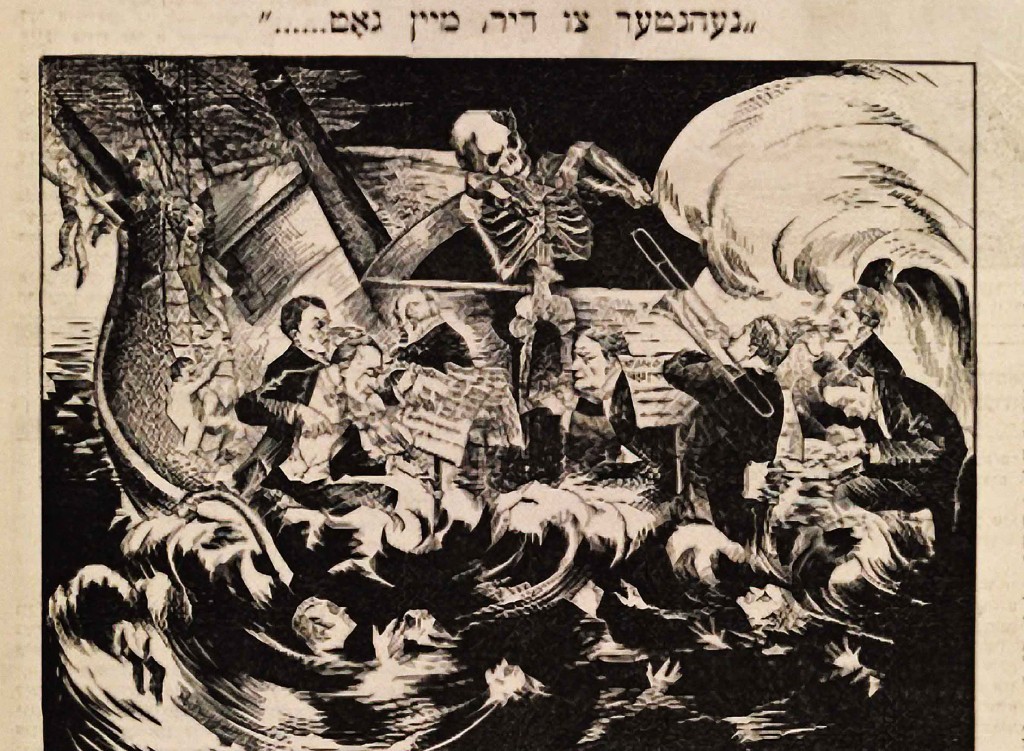
In New York the image was just as stark
In the UK, further confusion came with reports of the funeral of 18 year old Mr William Carbines, a former player of St Ives Town Band in Cornwall, and one of four men from the village that died on the fateful journey across the Atlantic.
Later news stories suggested he may have played in the ‘Titanic Band’.
Fact and fiction
With so many newspapers around the country looking for an ‘extra’ piece of exclusive ‘Titanic’ information, fact and fiction soon became further entwined.
Hartley’s funeral (with 50,000 mourners according to the Wigan Observer newspaper) was a case in point – the 33 year old was now referred to as “the Bandmaster of the Titanic”, whilst the presiding Minister somehow recalled verbatim a conversation Hartley had with the Captain of the ship in the event of an accident: “I will stick to my violin and inspire people with my playing,” he was alleged to have said.
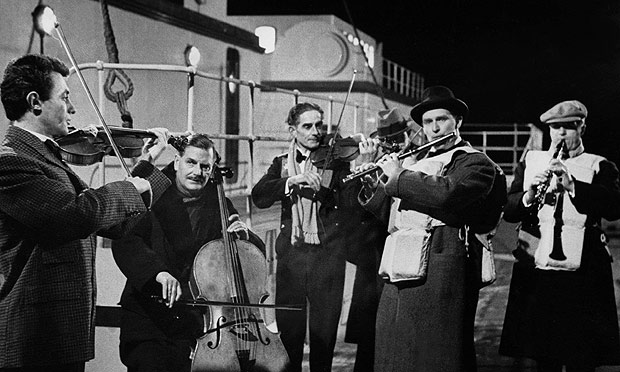
The Titanic band according to the 1958 film, 'A Night to Remember'
Meanwhile, it was reported that the London Symphony Orchestra had enjoyed good fortune. They had been originally booked on Titanic to take them for a three week tour of the US, but due to rescheduling of concerts, they left a week earlier on a different ship.
Meanwhile, it was reported that the London Symphony Orchestra had enjoyed good fortune. They had been originally booked on Titanic to take them for a three week tour of the US, but due to rescheduling of concerts, they left a week earlier on a different ship.
As the years rolled by and interest in the Titanic grew thanks to numerous books and films (the first released just 29 days after the disaster, a later one a Nazi propaganda production overseen by Joseph Goebbels) such as the 1958 British film ‘A Night to Remember’ - musical fact and fiction became ever more blurred. Its small ensemble orchestra contains a flutist and clarinet player, although no brass.
Hollywood
However, by the time Hollywood finally got its hands on the story with the execrable 1980 release, ‘Raise the Titanic’ starring Alec Guinness (producer Lord Grade quipped that it would have been cheaper to have lowered the Atlantic after it nearly bankrupted his company) things take a typically surreal artistic twist - the identity of the sunken ship confirmed by the discovery of a cornet played by a member of the Titanic orchestra.
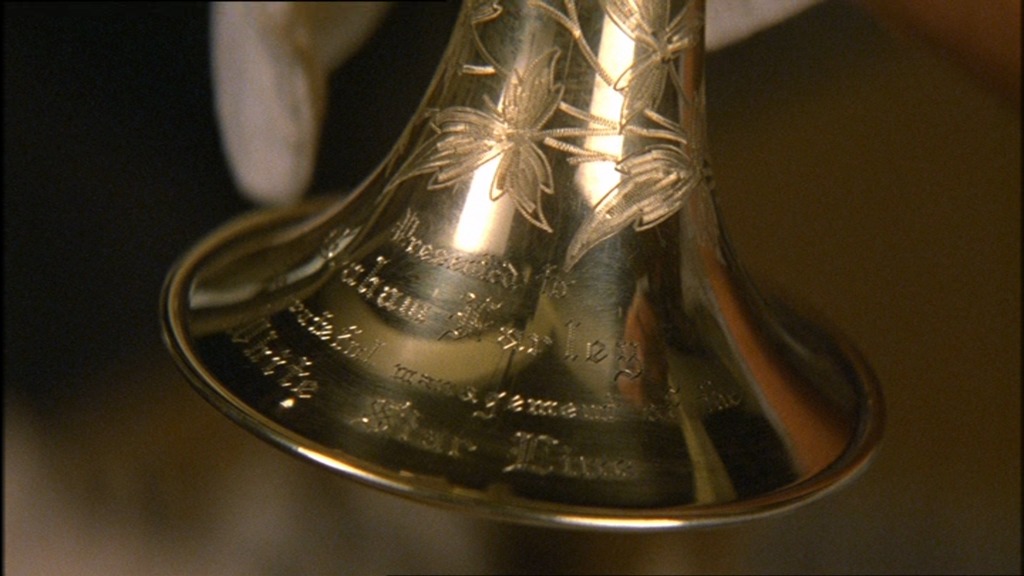
Cornet codswallop from the 1980 film, 'Raise the Titanic'.
The amazingly preserved cornet is engraved with the inscription: “Presented to Graham Farley by the grateful management of the White Star Line" – thus confirming their hunch that the wreck beneath them was in fact Titanic.
It was a load of codswallop.
As we now know, there was never a cornet player in the ensemble, and no such person called Graham Farley aboard the ship. Hollywood had just added another level of urban myth making.
Liberties
And whilst the epic multi-Oscar winning ‘Titanic’ of 1997 does take quite a few historical liberties, at least it kept the band as a string octet. However, the historian Simon McCallum called the playing of 'Nearer, My God, To Thee' in the film as “poetic licence... an evocative hymn that works as a romantic image in film."
And whilst the epic multi-Oscar winning ‘Titanic’ of 1997 does take quite a few historical liberties, at least it kept the band as a string octet. However, the historian Simon McCallum called the playing of 'Nearer, My God, To Thee' in the film as “poetic licence... an evocative hymn that works as a romantic image in film."
Myths persist
Even today, despite the RMS Titanic being found on the seabed, broken in two, with items recovered from within its hull, the stories, legends and urban myths, including that of it brass band connections, persist.
In 1986 Alf Hailstone of British Bandsman looked at some of myths that had arisen.
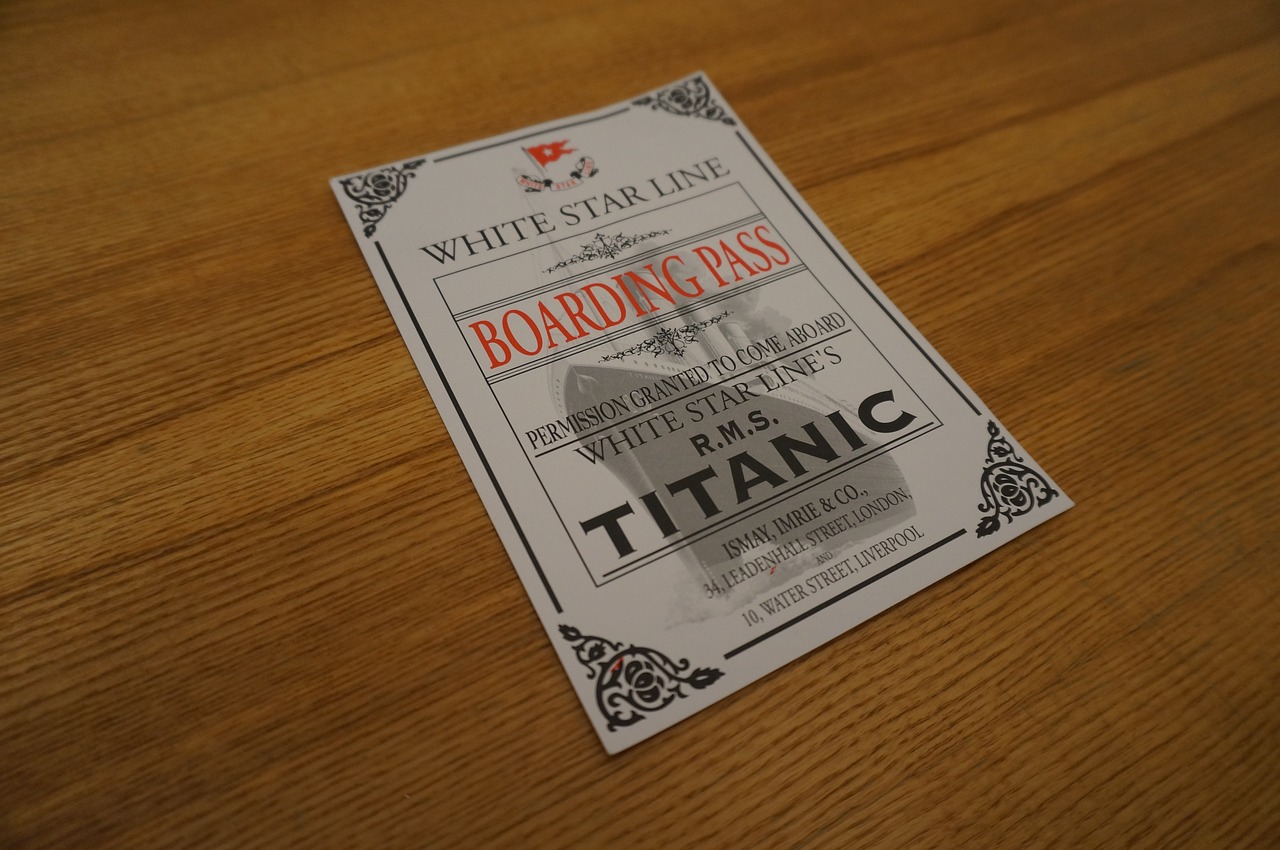
The myths and mystery still persist...
However, the respected historian Walter Lord (who died in 2002) told him that he believed that it was not ‘Nearer My God to Thee’ (as there at least two versions that could have been played at the time) that was the last hymn to be played, but the light waltz, ‘Sonage d’Atone’ as described by the radio operator.
In fact there was no brass band, no cornet, trumpet or trombone playing members (although by a strange quirk of fate, Theodore Brailey lived just a few doors down from where Harry Mortimer eventually lived in Ladbrook Grove in London), and certainly no cornet waiting to be found on the seabed by a Hollywood film producer...
And to cap it all, perhaps not even a rendition of a hymn that is now played out of historic inaccuracy to remember the souls of eight heroic musicians and over 1500 victims either.
Iwan Fox













